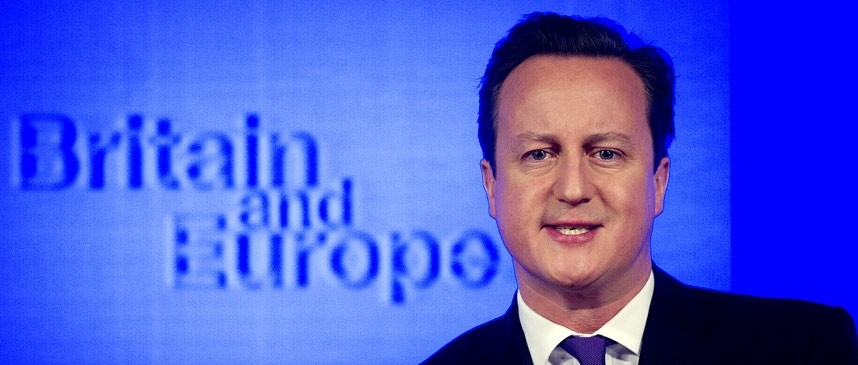
Cameron's European gamble is a losing proposition
David Cameron has embarked on a bold, possibly reckless, strategy to sort out Britain’s troubled relationship with the EU. He promises that, if re-elected, he will renegotiate membership terms, then hold an in-or-out referendum in 2017. The prime minister’s problem is that large parts of his Conservative party expect the renegotiation to deliver much more than his EU partners are likely to offer.
Many Tories believe EU leaders, faced with a UK exit, will give Mr Cameron enough to enable him to argue credibly that he has changed the terms of UK-EU relations. They count on Angela Merkel, Germany’s chancellor and the prime minister’s ally, to fix the rest of the EU.
It is true the Germans would like minor technical revisions of the EU treaties to put the euro (and notably its banking union) on a more solid basis. But they say that if the UK demanded repatriation of powers as the price of its signature, they would consider treaty changes that do not involve the EU – such as amending the “fiscal compact” that enforces budgetary discipline or the treaty of the European Stability Mechanism, the eurozone bail-out fund.
But there may not be any treaty change at all. Germany and the UK are the only members that want it. The French and others believe it would be almost impossible for them to ratify a new treaty, either through parliamentary vote or referendum. The EU is too unpopular.
These governments also worry that a German attempt to push through a mere technical change would open Pandora’s box; once a process of revision starts, many nations would chip in their own pet ideas. The French add that, if there really must be a treaty change at some point, it should be handled through a smaller group, so nobody has to worry about the British.
Ms Merkel will do what she can to keep the British in. Her vague references to “handing back” powers to member states have excited British Tories. But German officials say she does not mean changing the treaties to cut EU competences. She means EU leaders could pledge not to legislate in certain areas, or could simply agree to amend existing laws.
Though Mrs Merkel is Europe’s most powerful leader, she does not control the EU. Even if she supported particular treaty changes to help Mr Cameron, she would need to persuade 26 other member states to ratify them. So any British attempt to opt out of EU labour market rules would not get very far.
But if Mr Cameron goes for reform rather than repatriation, Germany will not be the only country to help. The Dutch, Irish, Italians, Nordics and Poles want to keep the UK in, and are in any case reform-minded. Others, however, are indifferent to the prospect of the UK leaving. Its implacable opposition to stronger EU institutions annoys many. And its penchant for free trade, the single market, EU enlargement, Atlanticism and a strategic approach to foreign policy is not universally liked. So the UK and its allies will have to work hard to bring about reform.
What could they aspire to change? They could enhance the power of national parliaments to block EU laws; liberalise services; limit the right of EU migrants to welfare; streamline the European Commission; and introduce safeguards to prevent euro countries harming the single market.
This would not satisfy many Tory eurosceptics. They will use May’s European elections, when their party is likely to receive a drubbing from the UK Independence party – to press Mr Cameron to fight the 2015 general election with a manifesto commitment to repatriate significant powers. Suppose he agrees, wins and goes to negotiate with his partners. He would come back largely empty-handed. How could Mr Cameron then credibly fight and win a referendum on EU membership? To avoid this scenario he should focus on reform, not repatriation. Then he would alienate a big chunk of his party but he might keep his country in the EU.
